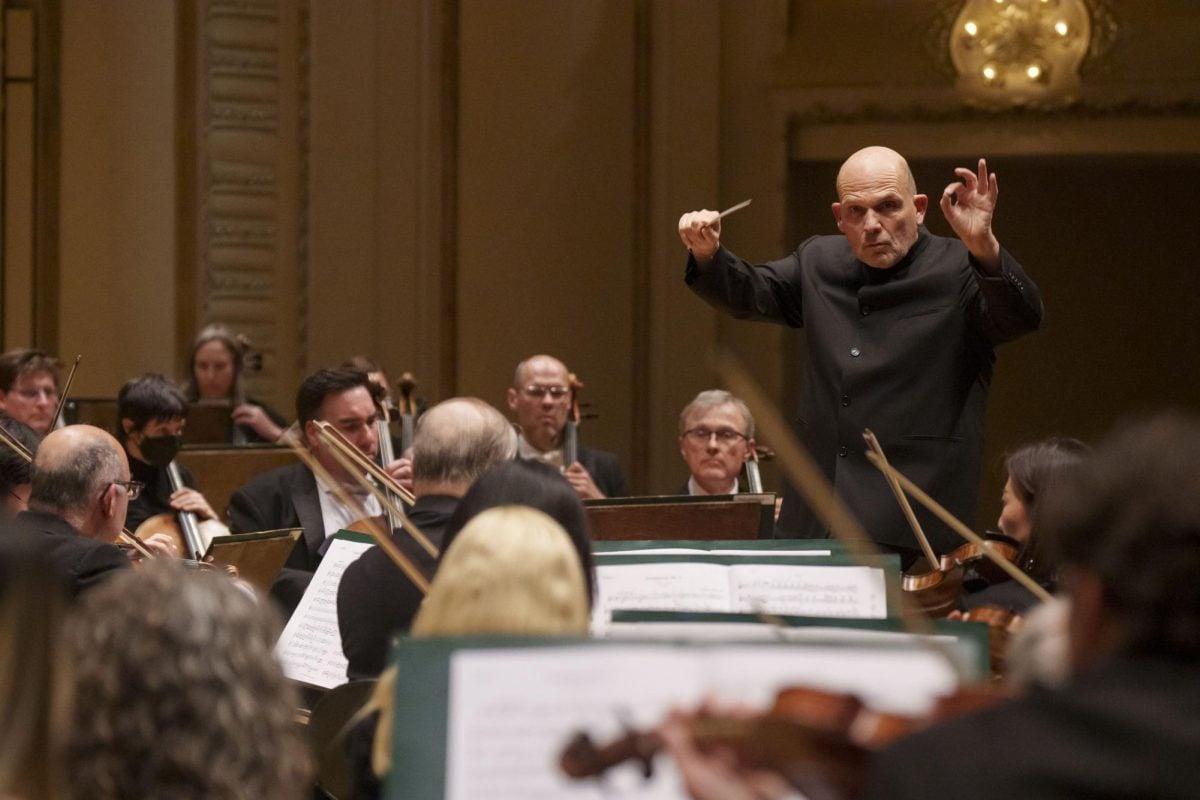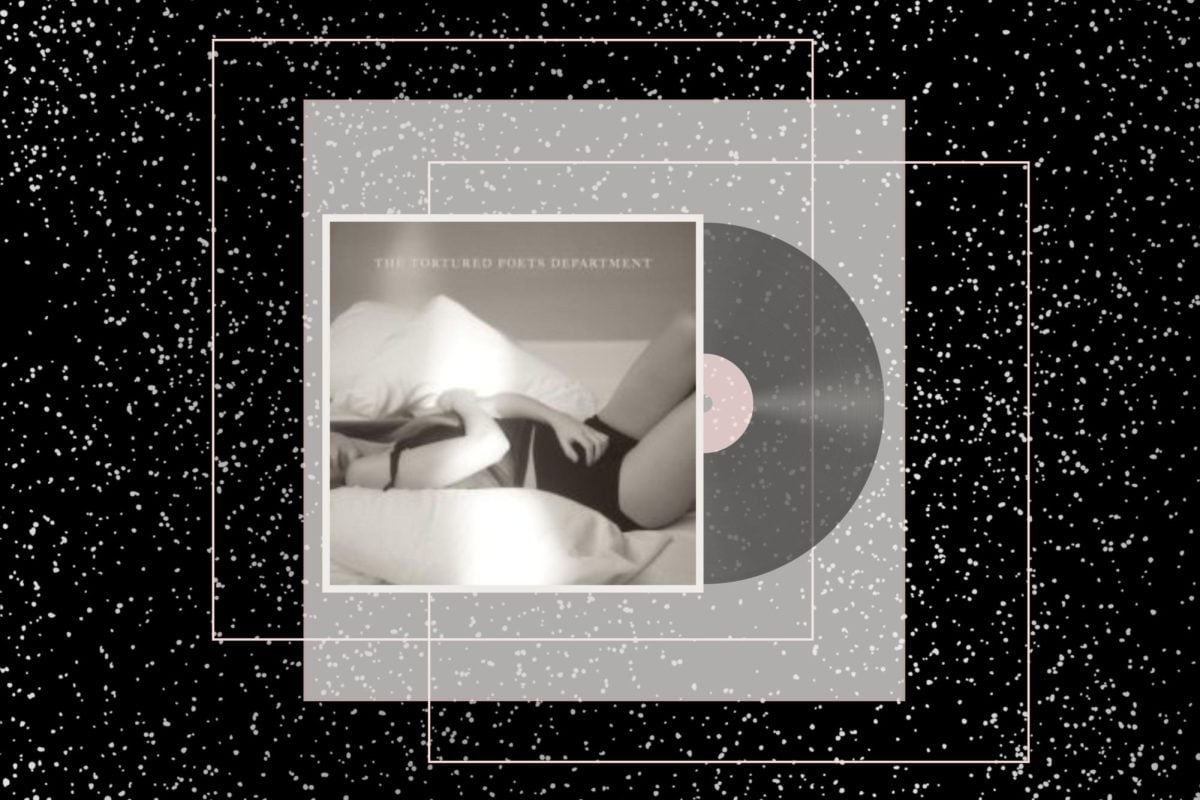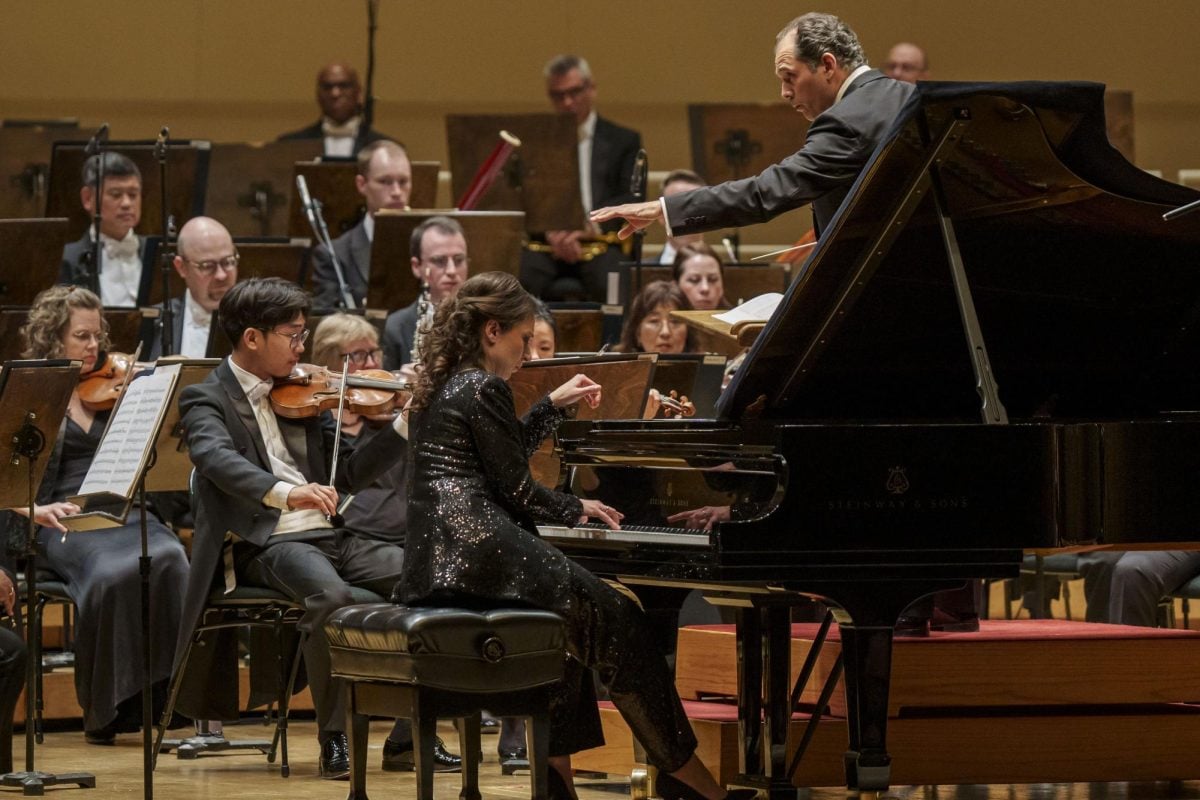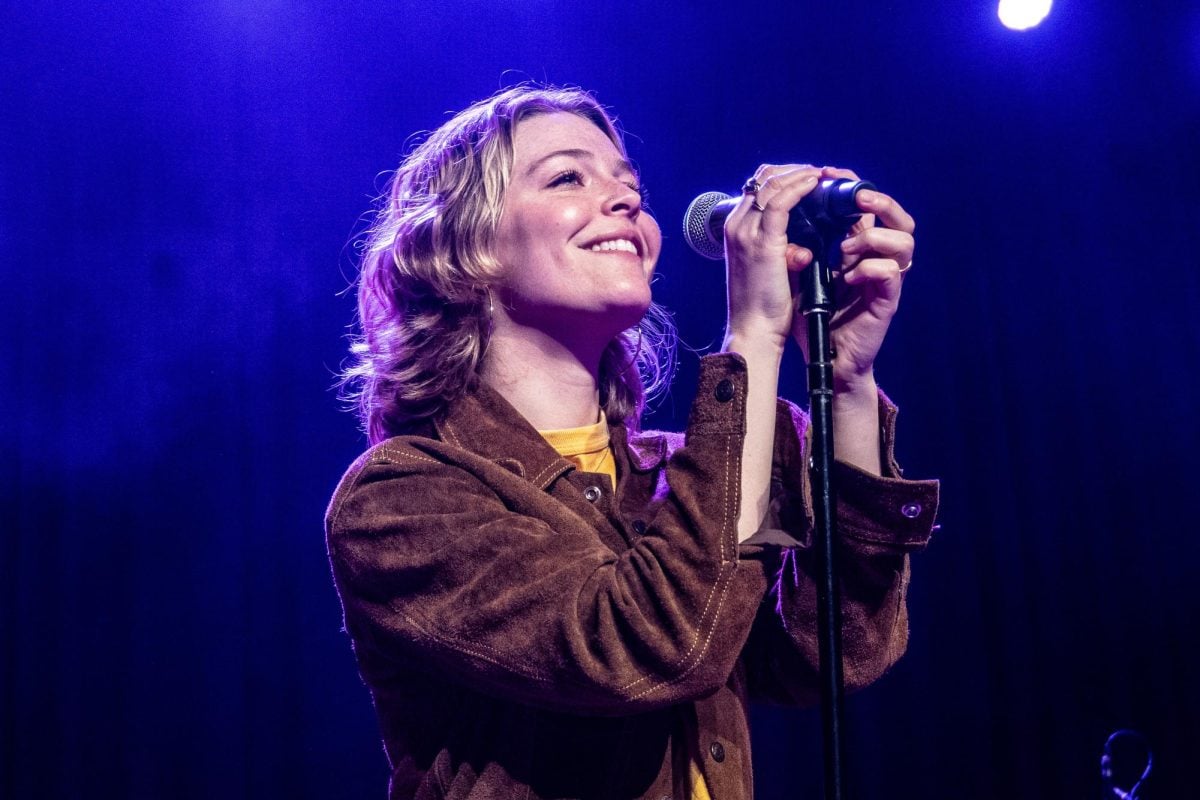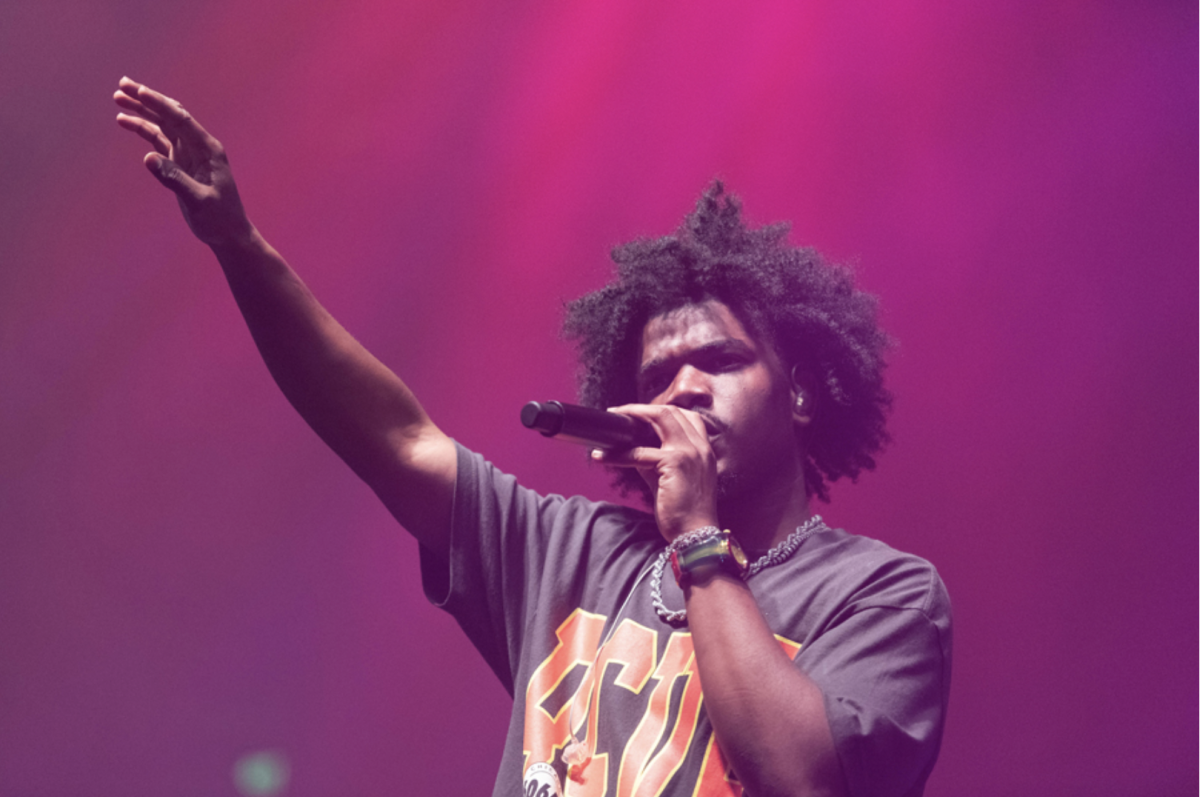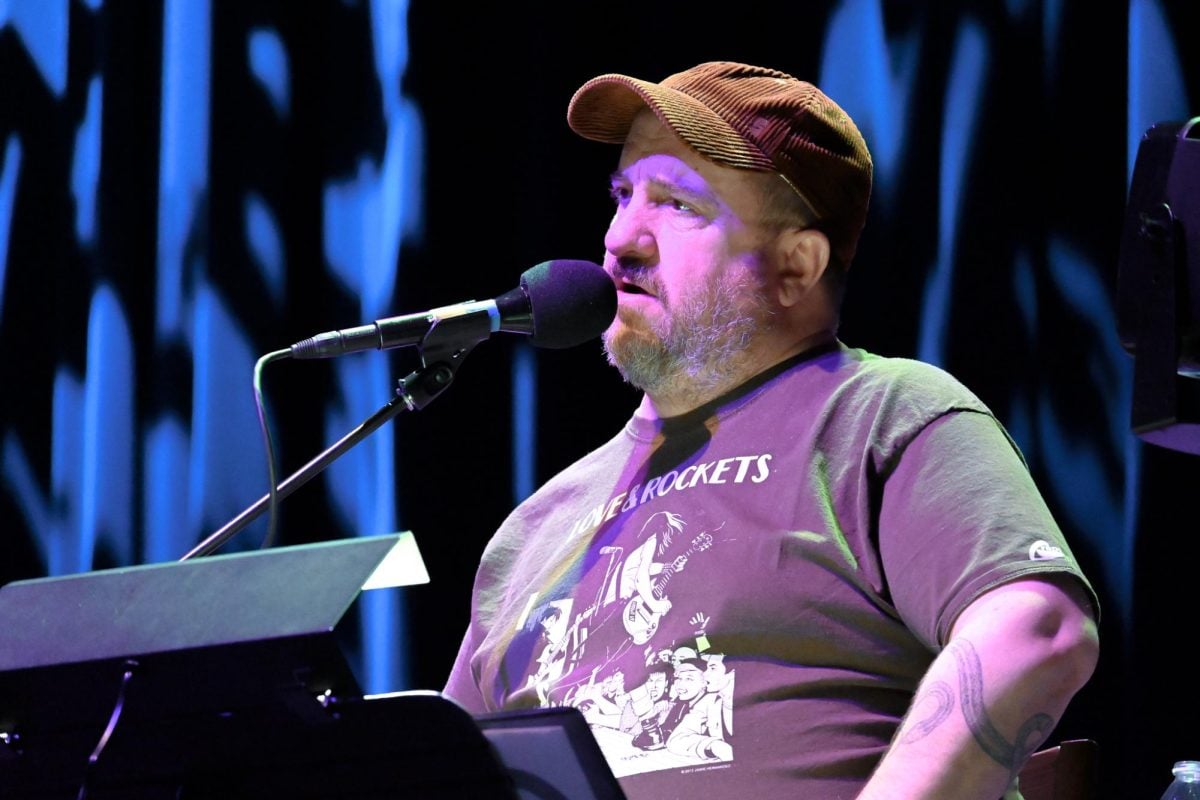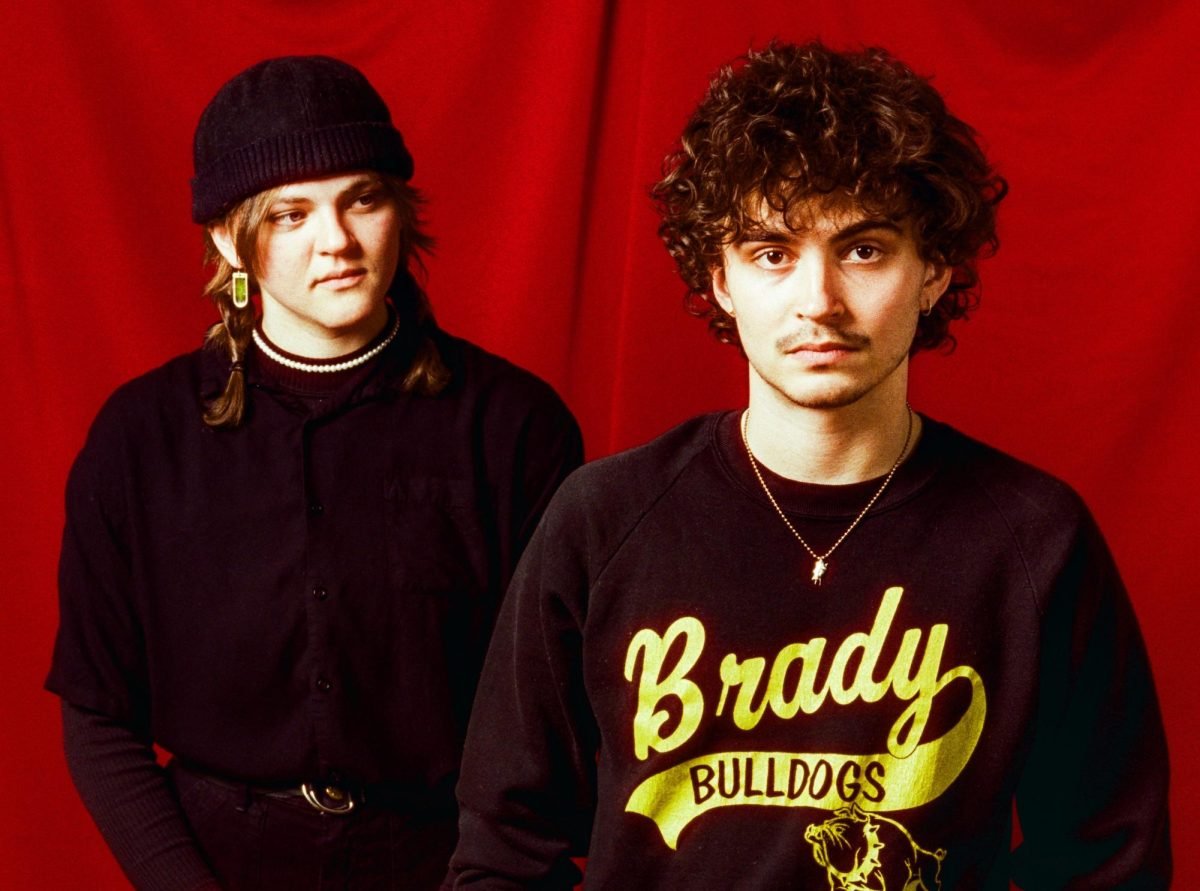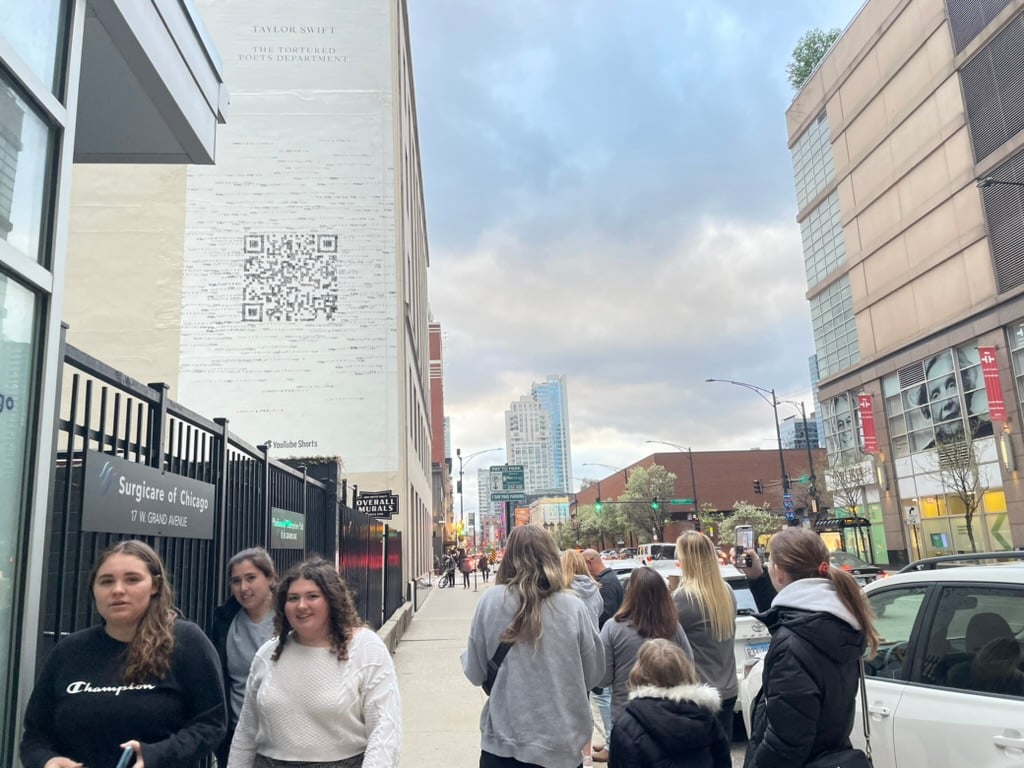The Chicago Symphony Orchestra’s Saturday concert, conducted by New York Philharmonic Music Director Jaap van Zweden, was a genre-transcending exploration through the full scope of human emotion.
The concert opened with the Chicago premiere of “Lumina,” a 2020 work by Princeton University Ph.D. candidate Nina Shekhar.. It was a journey through tone, featuring chilling extended techniques on the strings, woodwinds mimicking ornaments in Hindustani music and clusters of dense harmonies. “Lumina” served as the perfect appetizer for the greatness of antiquity to ensue.
Then came selections from Gustav Mahler’s song cycle “Des Knaben Wunderhorn,” masterfully interpreted by the German baritone Christian Gerhaher. Each song segued smoothly to the next, both in key and mood. It created an overarching narrative of a lonely soldier leaving home, being wounded in battle and finally seeing the light of heaven.
The ensemble’s first song, “Rheinlegendchen,” showcased the youthfully romantic side of Mahler. The piece was peppered with woodwind and string countermelodies basking in the rhythm of a Ländler –– an Austrian partner dance.
In “Der Tamboursg’sell,” Gerhaher almost dragged behind in his despair over a backdrop of funeral drums and desolate woodwind solos. He stood very still throughout the song, adding a sense of sorrowful solemnity. The song ended with the heaviest three notes of the program yet, the last outcry of the fallen protagonist: “Gute Nacht!”.
To end the first act, “Urlicht” represented a soul’s ascension toward divine light. Harmonies between the harp and strings brought the audience to absolute serenity, and the 10 seconds of silence after the last note spoke a lot more than the applause that followed.
After the intermission, the audience eagerly stomped their feet in anticipation of the night’s highlight: Ludwig van Beethoven’s Fifth Symphony. Unlike many recordings I’ve heard of the work, van Zweden’s rendition was characterized by prudent restraint and calculated passion.
The iconic four-note “da-da-da-dum” motif — which van Zweden launched into without wasting a second — was resolute and ominous rather than raw and violent. The orchestra never took for granted a single iteration of the motif, respecting the full intentions of Beethoven’s markings.
The second movement was full of the requisite phrasing and expression, and the orchestra never lost track of its steady beat. Van Zweden delivered the perfect balance of organic tempo fluctuations and strict pulse. The third movement, with frequent fluctuations in speed that felt somewhat unnatural, delivered contrast through the main theme based on the four-note motif from the first movement –– partly bringing back its tragic atmosphere.
Even in the height of passion, the orchestra never lost control. Some orchestras like to ferociously rip through the piccolo scales near the end of the symphony, adding to ecstatic intensity. In this performance, though, scales sounded more like cheerful birdsongs in the heavenly garden the audience has earned their entry into.
With the string players almost hurling their bows against their instruments and the brass, woodwinds and percussion in full force, the symphony’s final eight victorious bursts of energy were immediately followed by rapturous shouts of “Bravo!” and a standing ovation — a most fitting ending to a glorious concert.
The Chicago Symphony Orchestra will host its “College Night” Friday, offering complimentary refreshments and a Q&A session before a performance that will include George Gershwin’s Piano Concerto in F and Leonard Bernstein’s Symphonic Dances from “West Side Story.”
Email: [email protected]
Related Stories:

